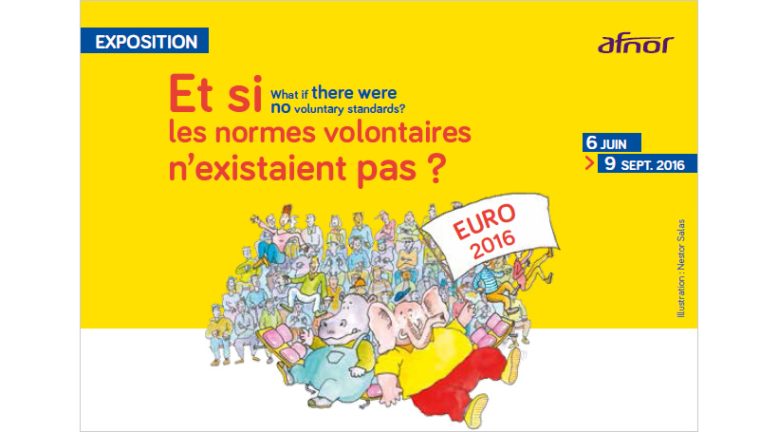What would soccer be like without voluntary standards? AFNOR responds with a humorous exhibition
Published on
07/06/2016,
updated
25/06/2024 à 11:41
Reading time : 1 minute

To mark Euro 2016, AFNOR invited fans and passers-by to discover 14 original, large-format drawings on the railings of the AFNOR building in La Plaine Saint-Denis, ideally located between the stadium and the RER B station. Using the absurd, designer Nestor Salas has imagined situations that would be unthinkable today on a soccer pitch or in a stadium, thanks to voluntary standards. The exhibition runs until September 9.